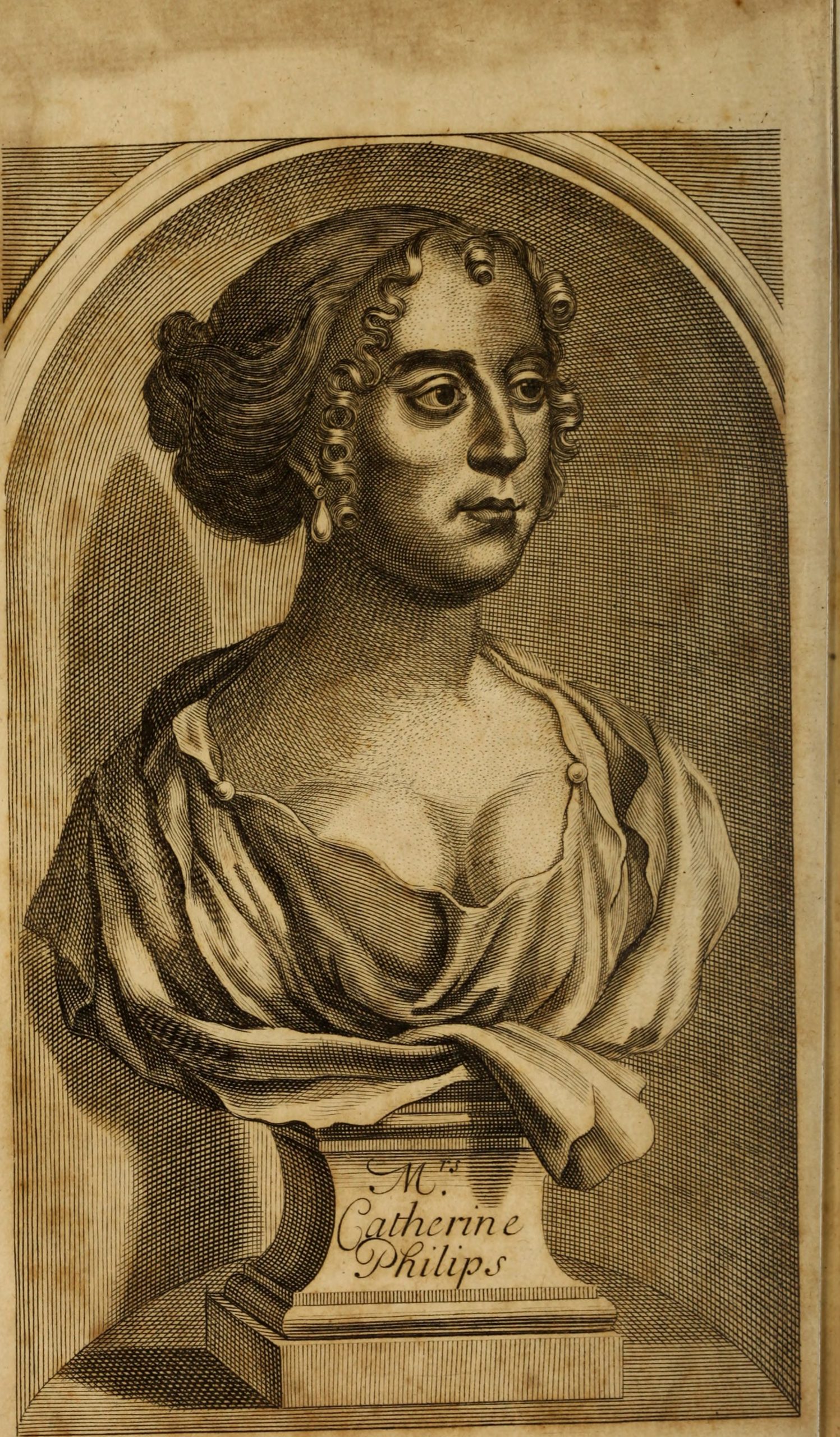 |
Introduction
by Erica Lopez
Katherine Philips was a royalist poet and translator of the seventeenth century. She was most known for her “coterie poetry” and the translations of two French works into English. Most of her poems were written about her friendships, her family and the royal court. Katherine wrote somewhere between 120-130 poems, translated two plays by Pierre Corneille and a few other French and Italian works before her blossoming literary career was cut short due to an early death, at the age of 32 (Hageman). Katherine founded The Society of Friendship which was a group of her close writer friends, mostly women, who proclaimed allegiance ideals of Neoplatonic Love and the members used pseudonyms from classical literature for their names like Lucasia and Rosania. Katherine herself was called Orinda and wrote many of her works under this pen name (Cooley). Most of her poems were published after her death around 1667 by Sir Charles Cotterell. Many of her followers and critics referred to her as “The Matchless Orinda.” She is believed to be one of England’s first women of letters (Buckingham).
Biography
Katherine Fowler Philips was born on January 1, 1632 in London. Her father, John Fowler, was a cloth merchant who died very early in Katherine’s childhood. Her mother, also named Katherine, married twice after the death of John Fowler. At a very young age, Katherine was an avid reader and had an excellent memory (Buckingham 270). She read the entire Bible and quoted many verses by memory (Buckingham 269). After her father died, Katherine was sent to an all-girls boarding school in Hackney where she learned French and became quite fluent in the language (Buckingham 270). It was during her mother’s second marriage that Katherine met and was married off to James Philips who is believed to be the cousin of her step-father, Sir Richard Phillipps. It is believed that James was 54 years-old when he married Katherine who was only 16 years of age at the time (Butler). Katherine gave birth to two children with James, a daughter named Katherine and a son named Hector. Hector died shortly after birth, and he is the subject of some of her most arresting works, such as “Epitaph”. Katherine was raised with Presbyterian beliefs but later became a Royalist and her husband James was a Parliamentarian. Despite the age difference and political beliefs, the couple shared a happy marriage until her death, from Smallpox, in 1664 (Hageman).
Summaries
A Married State
Katherine began most of her writing after she married, however, some believe that she may have written “A Married State” prior to her marriage to James. In this poem, she gives an account of what marriage means to her and she warns readers not to marry which was an unconventional and controversial view at the time—especially as voiced by a woman (Prince). The poem has no stanzas, it is 16 lines total with 8 sets of rhyming couplets and has an iambic pentameter (Prince).
Upon the Double Murder of King Charles
Katherine wrote this poem after King Charles I was executed for high treason by Parliament. It is believed that James Philips, Katherine’s husband may have been one of the witnesses to sign the death warrant for King Charles (Butler). Katherine wrote this poem as a response to Vavasor Powell who was a Nonconformist preacher and writer (Cramp). She tells of how King Charles’ death is not only a physical death but also the defamation of his character (a “death” of legacy and reputation as well). Most women during this time would not typically speak about politics, much less write about them. Katherine Philips was one of the first women in literature to freely write about political issues.
Friendship’s Mystery, To My Dearest Lucasia
Katherine wrote this poem to her friend Lucasia who was actually Anne Owen, a member of The Society of Friendship a correspondence group that Katherine founded in 1651 (Cooley). Half of her poems were written to Lucasia so many believe that they may have had a more romantic or sexual relationship. Katherine denied there being any other relationship between the two except a platonic one (Cooley). The poem has many religious references and the theme based on friendship (“Friendship’s”). The poem is written in the style of the English Quintain, it is written in eight-syllable tetrameters with six five-line stanzas with a rhyming scheme of a. b. a. b. b (“Friendship’s”).
On The Death of My First and Dearest Child, Hector Philips
Katherine wrote this poem after the death of her firstborn child Hector. Although infant death was prevalent during this time, Katherine needed to express the emotions she was feeling. Writing can be cathartic for many people and this was one of the ways that she was able to cope with the loss of her child.

